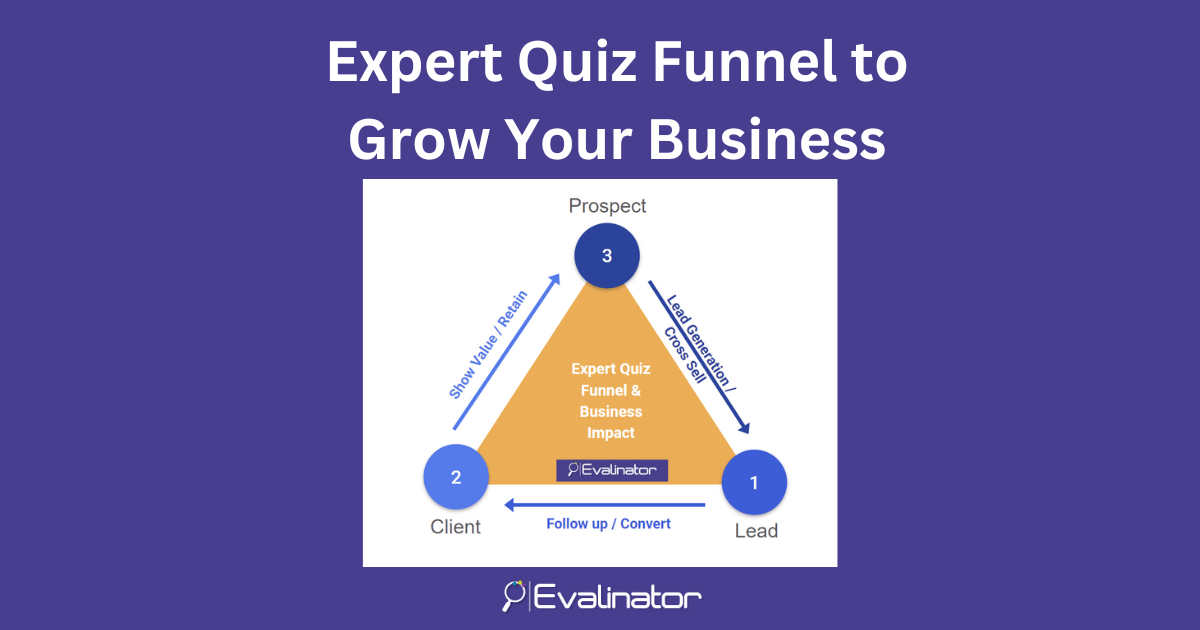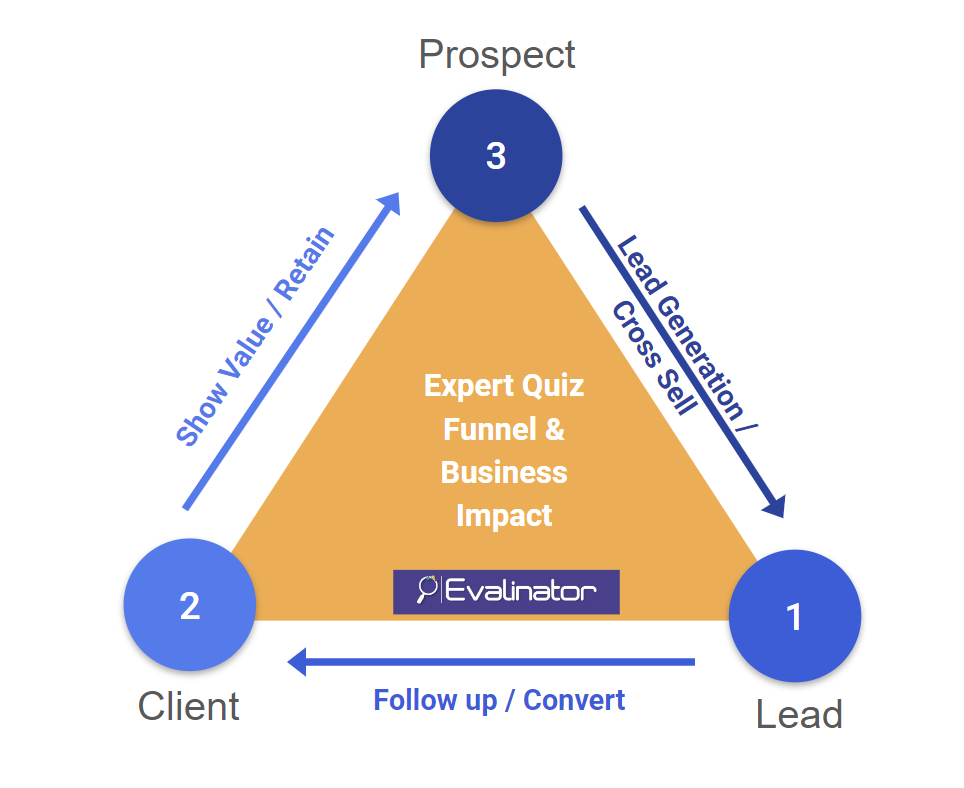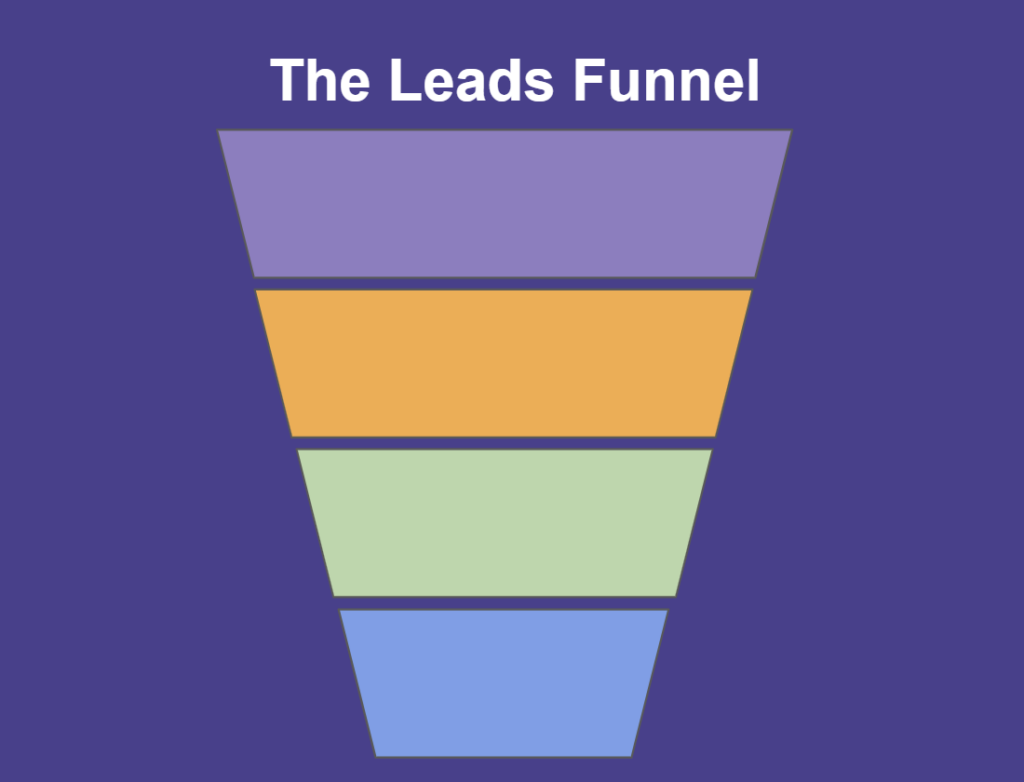


An expert quiz funnel is a fantastic tool to use for lead generation and also overall business growth.
It is also a very useful tool for consultative sales and needs assessment with clients.
Why? It returns value and insights immediately (lead generation), and sets the stage for more follow-up conversations (overall business growth).
In this blog we’ll cover the following:
Let’s get started.
An expert quiz funnel is a sales funnel led by a diagnostic assessment, maturity model, or scorecard.
It is a way for experts to:

At the very basic level, it consists of a series of questions followed by a diagnosis or result. The result must yield an useful insight or help respondents see the information they provided in a different light.
Note: When used for lead generation, typically “personality or type” style quiz is more useful. For example, “What’s your sales personality?”, or “Identify your brand’s personality?”.
However, when also used an onboarding, then an assessment is a good choice. For example, a customizable Wheel of Life. So your expert quiz funnel could have a lead generation quiz followed by an onboarding quiz.
Multiple questions could also be organized into categories or dimensions to provide a more comprehensive analysis of the subject area.
Evalinator allows for personalized feedback to be given to respondents based on individual question or dimension level scores.
Here’s how they work in general:
Consultants, coaches, and experts of all kinds (technology, process, or business) may create sophisticated lead generation quizzes in areas of their expertise.
Free templates are available on Evalinator to customize and use for your own coaching or consulting business.
An expert quiz funnel is a powerful lead generation tool for coaches, consultants, and professional service providers who rely on their expertise.
By creating a quiz or assessment that reflects your knowledge, you engage potential clients in a meaningful way.
For example:
These expert quiz funnels provide personalized insights to the user while giving you valuable leads.
As a result, a quiz funnel not only positions you as an authority but also helps build trust.
As users receive helpful feedback through your quiz, they see the value of your services, making them more likely to engage further.
This approach boosts conversions while showcasing your expertise.
By adding a call-to-action at the end of the quiz, such as offering a free consultation or resource download, you can nurture leads and guide them through your sales process effectively.
Think of your expert quiz funnel as a strategic business growth tool. See quiz funnel examples of how you map to multiple business offers.
Here are the different applications:
Now that you can appreciate the many uses of an expert quiz, here are a few things to keep in mind so you can be successful with your expert quiz or assessment.

See this blog post for creating an Expert Quiz Funnel “Ladder”. This strategy is to create a series of quizzes or assessments that work like a ladder. Following this approach means that you can use the same basic asset for different stages of your funnel.

The next important step is to drive traffic and build authority. See this blog post on getting started with authority marketing for using your expert quiz funnel for content marketing
An expert quiz funnel supports lead generation and also client lifetime value growth.
Go ahead and create one now. There is a 2 week free trial!
There are several templates available for experts and you can use them as a starting point. These can be used for lead generation, for consultative sales, and needs assessment, and also for account growth.
Once you subscribe, let us know if you’d like to discuss your strategy. We’ll be happy to help!
We are rooting for you!

Feeling frustrated with lead generation?
Take this free, 5-minute quiz and get more prospects into your leads funnel.
Instant Results. Actionable recommendations. Email required.
Find Your Score >>